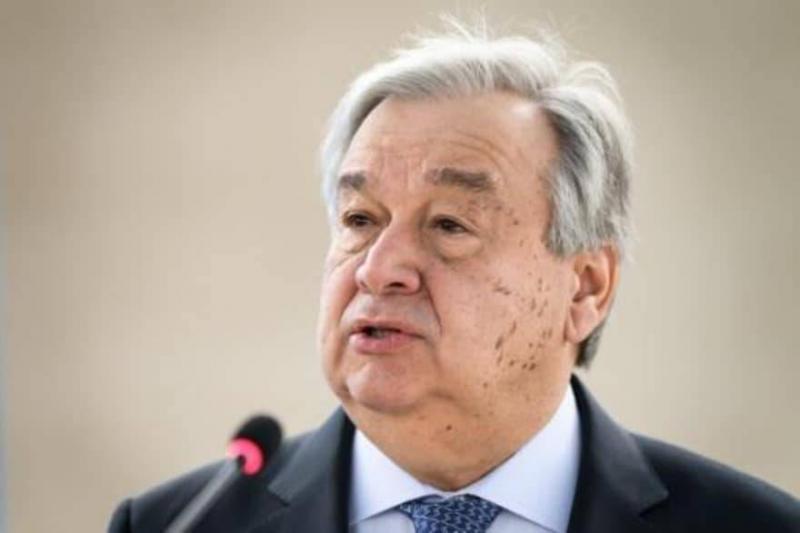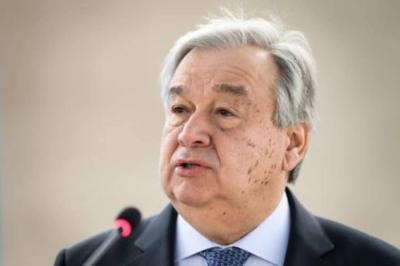United Nations Secretary-General Antonio Guterres, during an interview with Agence France-Presse, called for the international community to engage in "dialogue" with the Taliban, who have seized power in Afghanistan, while also expressing concerns about the potential repercussions of a scenario similar to Afghanistan on the Sahel region. Guterres stated, "We must maintain a dialogue with the Taliban. A dialogue in which we directly affirm our principles. A dialogue with a sense of solidarity with the Afghan people." He emphasized that "our duty is to stand in solidarity with a suffering people, as millions face the threat of starvation." He stressed the necessity of preventing an "economic collapse" in the country.
Without delving into lifting international sanctions or unfreezing Afghan funds globally, Guterres believes that the international community can provide Kabul with "financial resources" to prevent the country from going bankrupt and to allow "the economy to breathe." He reiterated that "this is in the interest of the international community, and I am not talking about lifting sanctions or recognizing the Taliban government; I am discussing targeted measures to allow the Afghan economy to breathe." He asked, "Are there guarantees?" for the international community in return for protection of the rights of women and girls. Guterres affirmed, "No, we cannot anticipate the developments of the situation, and therefore we must engage (in dialogue) with the Taliban."
The Secretary-General confirmed that dialogue with the militant Islamic group was essential "if we do not want Afghanistan to become a center for terrorism. If we do not want women and girls to lose all the rights they gained during the previous period. If we want different ethnic groups to feel represented." He noted, "So far, in the discussions we've had, there is at least some acceptance of dialogue." He added, "We want the country to be governed in peace and stability, with respect for people's rights," while "the Taliban wants to be recognized and have the sanctions against it lifted; they want financial support, which gives a certain power to the international community." The Secretary-General expressed readiness to go to Afghanistan one day if the necessary conditions are met.
Responding to a question about the fear of a repeat of the Afghan scenario in the Sahel region, Guterres said, "I fear the psychological and actual impact of what happened in Afghanistan." He added, "There is a real danger. These terrorist groups (in the Sahel) may become enthusiastic about what happened (in Afghanistan) and develop ambitions that go beyond those they had a few months ago." The Secretary-General emphasized that there is "something new in the world that is extremely dangerous," explaining that even if their numbers are not large, "there are extremist groups that, for example, view death as desirable. Groups willing to do anything, and we see armies collapsing before them." He mentioned, "We have seen this in Mosul, Iraq, in Mali during the first assault towards Bamako, and we have seen it in Mozambique (...). This danger is real, and we must seriously think about its implications for the terrorist threat and how the international community must organize itself to face this threat."
The Secretary-General stressed "the need to strengthen security mechanisms in the Sahel," as "the Sahel region is the most critical weak point that needs to be addressed. This is not just about Mali, Burkina Faso, or Niger; we now have incursions into Côte d'Ivoire and Ghana." Guterres said, "I fear today that the international community's response capacity and that of the countries in the region may not be sufficient in the face of the threat," explaining that "France will reduce its presence and there are reports of Chad's intentions to withdraw some of its forces from the border area of the three countries: Burkina Faso, Niger, and Mali." He added, "This is why I am fighting for an African counter-terrorism force, with a mandate from the Security Council under Chapter VII (which allows the use of force) and its own funding to ensure a response to the level of the threat."
The United States, the primary contributor to United Nations funding, is concerned that international forces deployed in Mali may lose their neutrality, preferring bilateral cooperation and rejecting this approach strongly defended by France.




